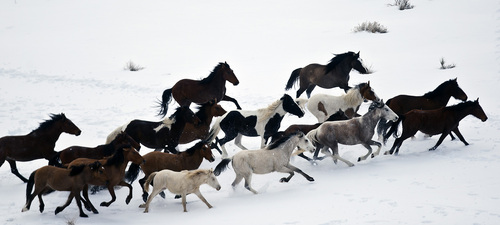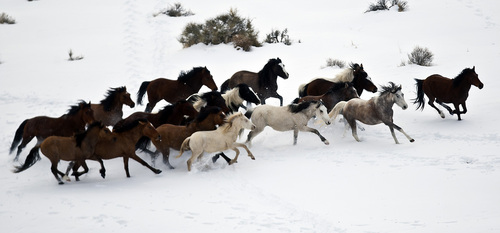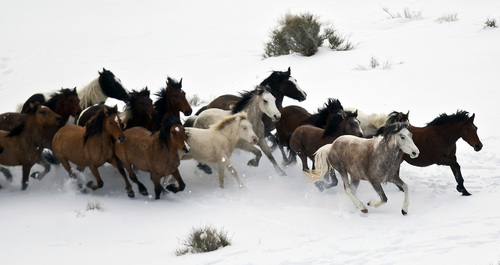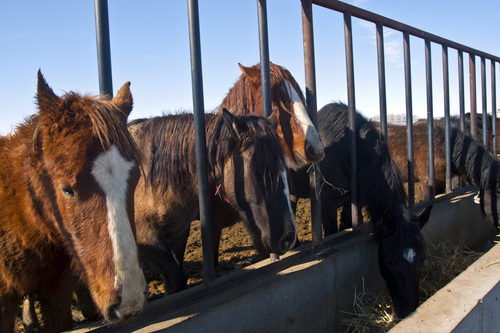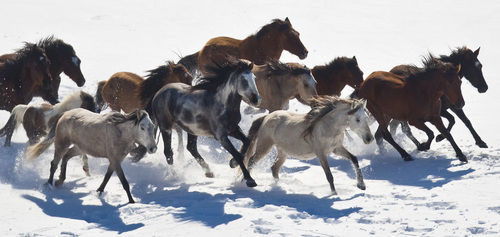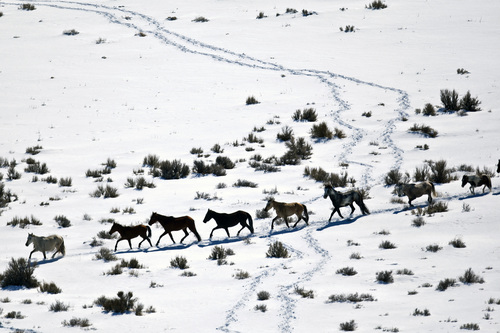This is an archived article that was published on sltrib.com in 2014, and information in the article may be outdated. It is provided only for personal research purposes and may not be reprinted.
After weeks of tension over how to handle the overpopulation of horses on drought-stricken range, Iron County and Bureau of Land Management officials began working together Thursday to corral some of them.
David Miller, chairman of the Iron County Commission, said Thursday that, so far, one corral had been built on private land in hopes of attracting feral and stray horses to a water source within the fencing. He said officials plan to build at least one or two more corrals in coming days.
He said captured feral and stray horses will likely be put up for adoption or auction, and the county will work with the BLM to make arrangements on any captured wild horses, which will be moved to a holding facility.
County leaders had given the BLM an ultimatum in recent weeks to reduce the overpopulation of wild horses, which they say are causing problems on the range shared by horses, cattle and wildlife on BLM land.
Miller claims 1,200 horses are spread throughout management units in the area, while the agency's own plans call for 300. BLM's 2013 statistics, however, estimated 447 horses on the 160,000-acre Bible Springs complex in northwest Iron County outside the town of Lund. The recommended population level for these three management areas is 190.
"It's not as much as we would like," Miller said Thursday of the corralling. "As the county, we're concerned it's not going to mitigate significantly the threat, but because we're getting progress, we will work together."
He added, however, that county officials aren't taking "any options off the table, because if there are imminent threats that we have to address, then we will."
Wild horses in the West are managed by the BLM through the federal Wild Free-Roaming Horses and Burros Act of 1971. The federal act prohibits public roundups of wild horses and burros, and wild horse advocates have called on the BLM to block any roundups by ranchers in Utah or Nevada.
In recent years, wild horses have been joined by a growing number of horses released by people who could no longer afford to stable and feed them. Those horses are the ones Iron County is targeting.
Miller argues the BLM is breaking federal law by not appropriately managing the herds. As the chairman of the Iron County Commission, he said, he has authority under Utah State Code to arrange a roundup.


